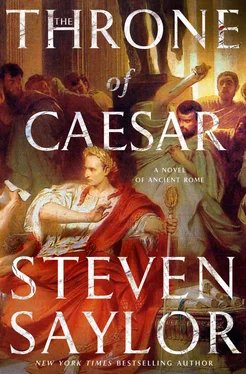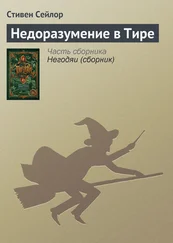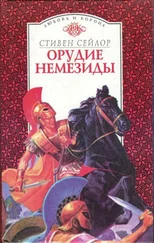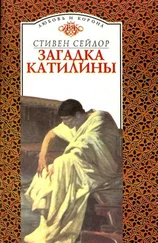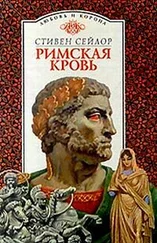Стивен Сейлор - The Throne of Caesar
Здесь есть возможность читать онлайн «Стивен Сейлор - The Throne of Caesar» весь текст электронной книги совершенно бесплатно (целиком полную версию без сокращений). В некоторых случаях можно слушать аудио, скачать через торрент в формате fb2 и присутствует краткое содержание. Год выпуска: 2018, Издательство: St. Martin's Press, Жанр: Исторический детектив, на английском языке. Описание произведения, (предисловие) а так же отзывы посетителей доступны на портале библиотеки ЛибКат.
- Название:The Throne of Caesar
- Автор:
- Издательство:St. Martin's Press
- Жанр:
- Год:2018
- ISBN:нет данных
- Рейтинг книги:5 / 5. Голосов: 1
-
Избранное:Добавить в избранное
- Отзывы:
-
Ваша оценка:
- 100
- 1
- 2
- 3
- 4
- 5
The Throne of Caesar: краткое содержание, описание и аннотация
Предлагаем к чтению аннотацию, описание, краткое содержание или предисловие (зависит от того, что написал сам автор книги «The Throne of Caesar»). Если вы не нашли необходимую информацию о книге — напишите в комментариях, мы постараемся отыскать её.
The Throne of Caesar — читать онлайн бесплатно полную книгу (весь текст) целиком
Ниже представлен текст книги, разбитый по страницам. Система сохранения места последней прочитанной страницы, позволяет с удобством читать онлайн бесплатно книгу «The Throne of Caesar», без необходимости каждый раз заново искать на чём Вы остановились. Поставьте закладку, и сможете в любой момент перейти на страницу, на которой закончили чтение.
Интервал:
Закладка:
“At least you understand and respect the importance of the toga,” said Mamercus quietly. “But it’s impossible, nonetheless. Every senator I know intends to be present at that meeting on the Ides, hundreds of them. I’ve been inundated with togas—togas for mending, togas for washing, togas that need alteration to accommodate a bit of added girth. Those who didn’t bring togas to be cleaned or altered came to order brand-new togas, so as to look their best at their last meeting with the Dictator before he leaves Rome. I don’t know how I shall make good on all the outstanding orders I have already. I can’t possibly accept another.”
“But you must have something for my father to wear,” said Meto. “Perhaps a toga you acquired secondhand, or one that was never retrieved and deemed abandoned by its owner, or perhaps a toga that failed to meet the owner’s specifications—”
“Young man!” snapped Mamercus. “You are asking if I might lower my standards of quality to somehow accommodate your father’s needs—and the answer is no. No toga has ever left, or will ever leave, this premises without being perfect in every regard—perfectly fitted, perfectly cleaned, even perfectly folded, wrapped in linen and tied with string to be carried home by the slave who comes to fetch it. No, no, no! You ask too much of me.”
I waved my hand to silence them both. “Mamercus, I understand perfectly what you’re saying. I regret that it won’t be one of your togas that I shall wear on the Ides, for I should like to be clothed in a garment made with such obvious care and pride. But impossible is impossible. If it can’t be done…”
“I assure you, citizen … or, rather, Senator Gordianus … I cannot supply a toga for you on that date.”
“Then I must find another solution,” I said, giving him a parting nod. I gripped Meto’s arm to cut short whatever remark was poised on his lips, and walked toward the door, pulling him with me. “I’ll somehow make do, with something less than the best—as many a Roman must these days—and in the meantime, I will have the consolations of poetry.” I nodded toward the linen-wrapped scroll in Meto’s hand. “We leave without a toga, son—but not without the Zmyrna. ”
XXI
“But why Zmyrna ?” I asked, prolonging slightly the buzz on my lips as I spoke the first letter.
“Because she’s the subject of the poem, of course,” answered Meto.
We sat in the library of my house, which was lit by a great many lamps. Night had fallen. Dinner had been eaten. Wine had been drunk, a bit more by me than by my son. Bethesda had gone to bed, as had Davus and Diana. Meto and I had retired to the library, where I loosened the drawstring and slipped the scroll from its linen pouch.
“No, Meto. When I say, ‘Why Zmyrna ?’ I don’t question the meaning of the title but the way it’s spelled. As far as I know, there is no letter ‘Z’ in the Latin alphabet. In the Greek alphabet, yes, but not in Latin, not since it was banished many generations ago by our wise ancestors. The great Appius Claudius said about the letter ‘Z’ that ‘the man who makes such a sound produces a facial expression like as that of a grinning skull.’ Cicero once said to me, ‘Old Appius Claudius achieved many a great thing—the Appian Way, the Appian Aqueduct—but his other achievements pale beside his banishment of the letter that shall not be named.’”
“I’m sure Cicero was joking, Papa. ”
“Exaggerating, perhaps, but not joking. Cicero takes letters very seriously. But as I was saying, since the poem is in Latin, why did Cinna spell the girl’s name in Greek fashion instead of in Latin, with an ‘S’—Smyrna? Zmyrna seems a bit … precious.”
Meto laughed. “Oh, Papa, if you start by finding the title pretentious, I fear to imagine what you’ll make of the actual verses! But you make a good point. Even before the poem begins, with the very first letter of the title, Cinna announces to his reader that we are about to enter a web of complex and sophisticated language, full of word games and esoteric references. The same announcement is made to the listener who hears the poem recited, since at the very outset the reciter must say that dreaded letter, pulling back the lips and baring the teeth. Cinna very deliberately chose to title his poem Zmyrna, and you, Papa, picked up on the significance of that choice right away. I’m impressed.”
I was gratified by his praise, even as a part of me dreaded the sesquipedalian word games I was likely to encounter with each turn of the scroll. Could I even get through the poem? And if I did, would I feel a complete dunce by the end?
“Perhaps I should read it on my own, silently, to myself,” I suggested.
“Oh, no, Papa. A Latin speaker’s first reading of the Zmyrna is one of life’s richest literary pleasures. I want to share it with you. We can take turns reading aloud to each other.”
Was this a pleasure he had shared with Caesar in their tent on long wintry nights up in Gaul, or in stolen moments on the banks of the Nile? I felt a curious stab of jealousy. But here was Meto not merely offering but insisting that we read the poem together. I could hardly refuse.
With all this talk of Zmyrna, the outcome of her story had come back to me: Having offended an Olympian goddess (I couldn’t remember which), poor young Zmyrna fled from the lands of the Greeks into the wilds of Arabia. On the point of death, she was transformed into a small, twisted tree. Her tears became the sap of the tree, the precious substance myrrh, a word derived from her name.
I had also remembered that this was not quite the end of the story. Even as Zmyrna became a tree, a child emerged from her woody womb. That child was Adonis, who would eventually become the beloved of Venus. Did this mean that Zmyrna was pregnant before she fled to Arabia? Who was the father of Adonis? I had no recollection of that part of the myth.
My ignorance was about to be rectified by Cinna’s poem.
The story was not recounted in a straightforward fashion. If Cinna’s vocabulary was challenging, the structure of his poem was perhaps more so. It jumped about in time and space and shifted points of view yet somehow never lost coherence. Each fragment, complete and perfect in itself, somehow connected with every other fragment, so that the whole was greater than the sum of its parts.
The very cadence of the poem cast a spell, as did the musical quality of the language—sometimes as playful as a flute, sometimes as frantic and unsettling as the rattle of a Maenad’s tambourine, sometimes as bewitching as the plaintive notes of a lyre heard by moonlight.
I thought I would prefer those moments when Meto read aloud, for he had a beautiful voice and knew exactly where to place each stress depending on the secret meanings of the words. But I enjoyed just as much the experience of reading the verses aloud myself, letting my lips and tongue play upon the absurdly convoluted edifice of language. Even when I didn’t quite understand what I was reading, the words themselves produced music. When I did understand not merely the outermost level of meaning but also the multiple puns and learned references, I felt an added thrill, as if the words that emerged from my mouth were truly something more than air, compounded of some enchanted substance that encircled and gently caressed both Meto and myself.
Enraptured as I was by the spell of the language, it was only gradually that the story of the poem crept up on me. From the outset every detail seemed strangely familiar, like a dream forgotten, then experienced again. Had I once known the story of Zmyrna and deliberately forgotten it? A dream—or nightmare—is perhaps the best comparison I can make to my experience of Zmyrna’s story that night, sometimes spoken by Meto, sometimes spoken by myself. It seemed at once I slept and yet was awake, that I was an active participant in the story but at the same time a passive, impassive dreamer. The tale of Zmyrna seemed very far away, a figment of a distant past, and yet at the same time terribly near, like an object almost touching one’s eyeball—tiny yet unimaginably monstrous.
Читать дальшеИнтервал:
Закладка:
Похожие книги на «The Throne of Caesar»
Представляем Вашему вниманию похожие книги на «The Throne of Caesar» списком для выбора. Мы отобрали схожую по названию и смыслу литературу в надежде предоставить читателям больше вариантов отыскать новые, интересные, ещё непрочитанные произведения.
Обсуждение, отзывы о книге «The Throne of Caesar» и просто собственные мнения читателей. Оставьте ваши комментарии, напишите, что Вы думаете о произведении, его смысле или главных героях. Укажите что конкретно понравилось, а что нет, и почему Вы так считаете.
